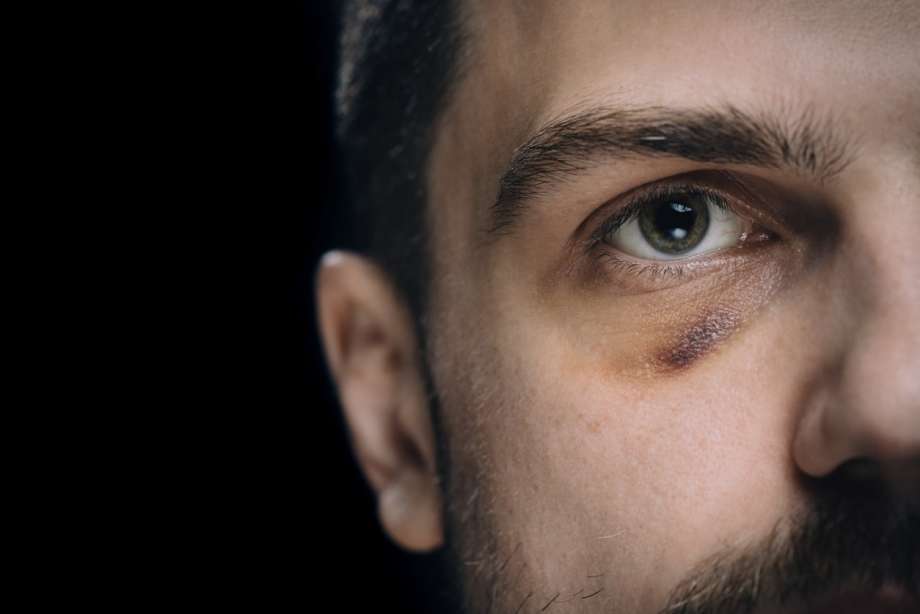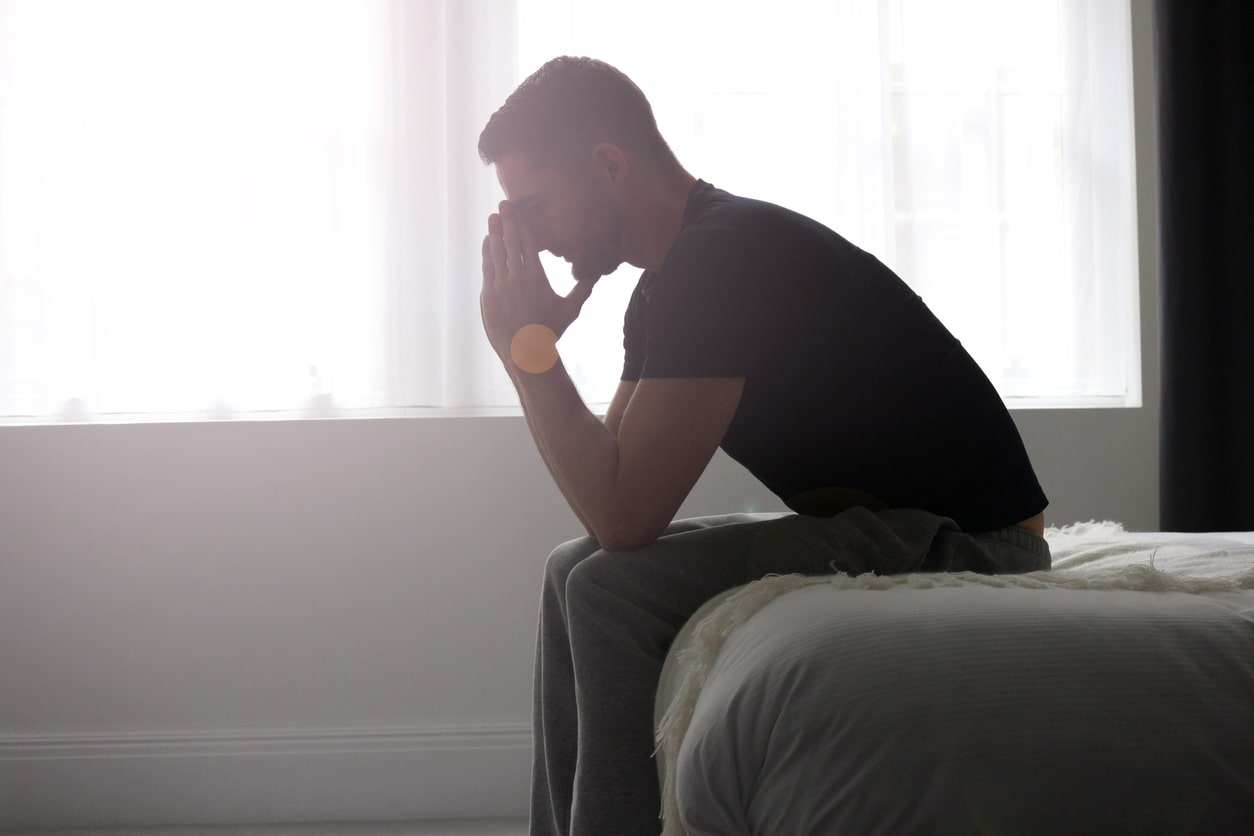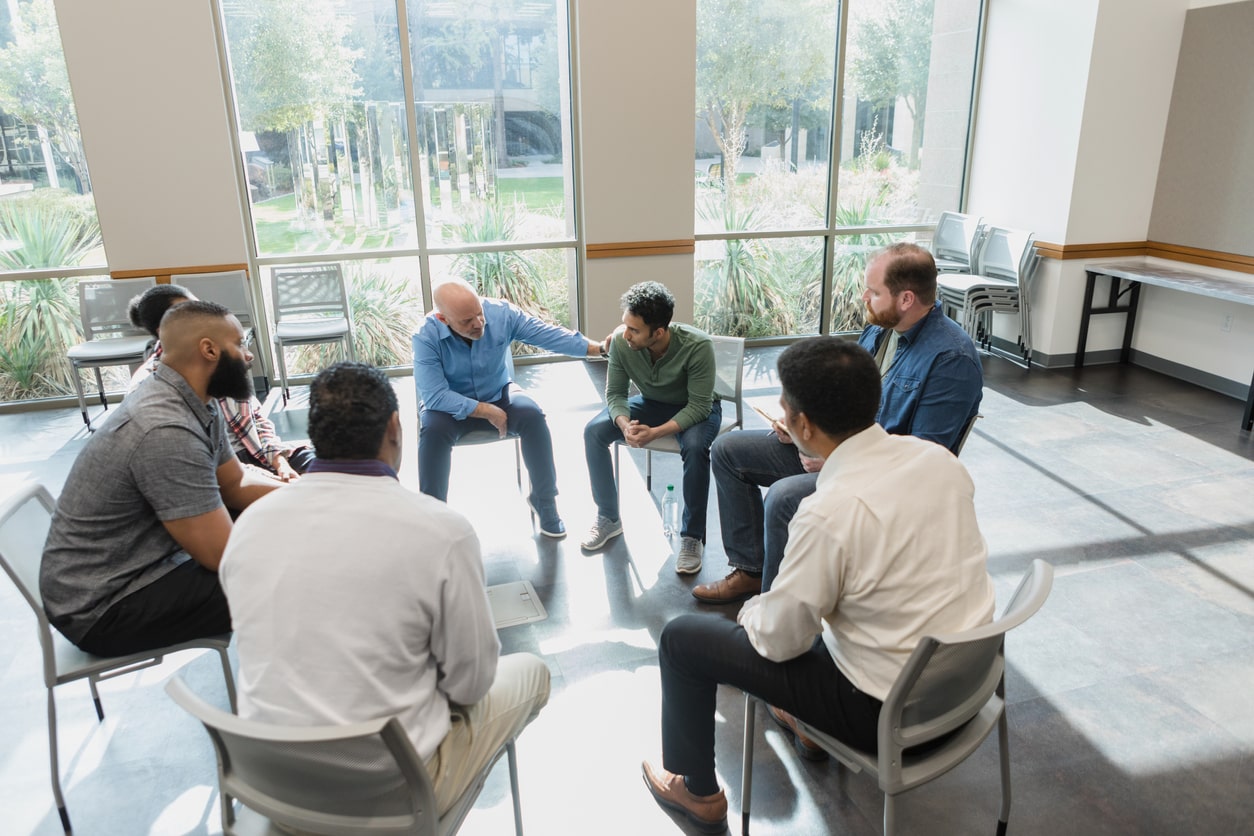Understanding Domestic Abuse Among Men and Fathers

According to the World Health Organization, intimate partner violence is one of the leading risks to women’s health. But domestic abuse can affect anyone, including men.
Men are often overlooked as victims of domestic violence. And for parents, it can be incredibly challenging to navigate domestic abuse while managing their caregiving duties.
We spoke to Dr. Antoria Gillon, Founder and CEO of the nonprofit From Ordinary to Extraordinary (FOTE), about the significant issue of domestic violence against men, especially fathers, from their partners. With Dr. Gillon’s help, we outline why men are often overlooked as victims, signs of abuse, and tips for how to care for their children while living healthy and productive lives.
About FOTE and Dr. Gillon
FOTE is an award-winning nonprofit organization recognized by the State of Texas, designed to empower women and men who have experienced domestic violence, childhood trauma and teen pregnancy. After experiencing years of abuse herself, Dr. Gillon founded FOTE to help all victims of domestic abuse.
By serving both moms and dads in need of escaping the strongholds of trauma, abuse, hopelessness, and poverty, the reality of hope is created for the entire family. Dr. Gillon has since opened two schools that hold 6 different licenses, two maternity homes, two resource centers, a mobile unit that provides off-campus training, and an international school that’s located in Liberia, West Africa.
Through her experience in working with abuse victims, she found that many return to their abuser due to financial hardship and emotional trauma. She also found that many victims, including men, are turned away from domestic abuse shelters.
FOTE offers free counseling, education and financial programs, maternity services, and a barbering/cosmetology program to give victims a free way to earn their cosmetology or barbering license and financially provide for themselves, away from their abuser.
U.S. Stats on Male Victims of Domestic Abuse
Domestic abuse affects individuals of all genders. While statistics often focus on violence against women, it’s important to acknowledge that males can also be victims of domestic violence.
According to the National Intimate Partner and Sexual Violence Survey (NISVS) conducted by the Centers for Disease Control and Prevention (CDC), almost a quarter of men reported some form of sexual violence in their lifetime. This includes physical or emotional abuse from a partner or family member.
1 in 10 men in the U.S. experienced at least one of the following:
- Contact sexual violence.
- Physical violence.
- Stalking by an intimate partner during their lifetime.
- Intimate Partner Violence (IPV) related impact including fear, concern for safety, and symptoms of post-traumatic stress disorder.
It’s important to note that IPV, sexual violence and stalking among men are not exclusive to heterosexual couples. According to the CDC, here are the abuse types and sex of perpetrators reported by male victims:
Sexual Violence
- 87% of male victims of (completed or attempted) rape reported only male perpetrators.
- 79% of male victims of being made to penetrate reported only female perpetrators.
- 82% of male victims of sexual coercion reported only female perpetrators.
- 53% of male victims of unwanted sexual contact reported only female perpetrators.
- 48% of male victims of lifetime non-contact unwanted sexual experiences reported only male perpetrators.
Stalking
- 46% of male victims reported being stalked by only female perpetrators.
- 43% of male victims reported being stalked by only male perpetrators.
- 8% of male victims reported being stalked by both male and female perpetrators.
Intimate Partner Violence
- 97% of men who experienced rape, physical violence, or stalking by an intimate partner had only female perpetrators.
Explanations of a Growing Trend in Men Experiencing Domestic Abuse

Domestic abuse is a serious public health concern that affects millions of lives; however, the number of men experiencing abuse isn’t a growing trend.
Dr. Gillon explains that there have always been many men who have experienced abuse in their past or are currently experiencing it, they’re just not speaking up.
Unfortunately, most people, even close family and friends, oftentimes have no idea when men are being abused because they miss the warning signs and aren’t asking the right questions.
“It’s not easy to speak up about trauma, especially domestic abuse, but when men know they are in a safe space to share and see other men open up, it starts the conversation of what’s going on behind closed doors,” advises Dr. Gillon.
Why Are Men Often Overlooked as Victims of Domestic Abuse?
It’s essential to note that domestic abuse among men is believed to be significantly underreported due to societal stigma, traditional gender roles, and a lack of awareness and support services tailored to male victims.
Dr. Gillon adds that society tends to view men as protectors and has trouble seeing men as vulnerable people who can be physically or emotionally abused.
There is a notion of teaching young boys to be tough and to hide their negative emotions to not appear weak. But this can create issues in adulthood as they struggle to emotionally express themselves.
“When young boys are told they have to be strong no matter what, as they get older and abuse takes place, they have this unfazed mindset to push through the abuse and pretend it’s not as detrimental as it really is,” explains Dr. Gillon.
A qualitative analysis that looked at male victims of female-perpetrated partner violence revealed the following themes among male victims’ perceptions of partner violence, male victims and worth in society:
- Lack of sources of support and understanding for male victims.
- Current legal statutes that may harm the interests of male partners.
- Perceived forms of societal, legal, and administrative bias.
Other reasons men do not report or seek help for their abuse include societal beliefs that the abuse of men is often treated as less serious, or a “joke” and that media portrays men as just the perpetrators of violence, but never the victims.
Signs of Domestic Abuse Among Men

Domestic abuse or intimate partner violence against men can take various forms, just as it does against women. Signs of domestic abuse among men may include:
- Physical Violence: This includes hitting, slapping, punching, or any form of physical harm.
- Emotional and Psychological Abuse: This can involve constant criticism, humiliation, and manipulation. Abusers may belittle their partners, make threats, or use control tactics.
- Isolation: Abusers may isolate their partners from friends and family, limiting their social interactions.
- Financial Abuse: This can include controlling a partner’s finances, not allowing access to money, or forcing them into economic dependence.
- Verbal Abuse: Insults, name-calling, and verbal threats can be used to maintain control.
- Sexual Abuse: Coercion, force, or any form of non-consensual sexual activity is a sign of abuse.
- Stalking: Unwanted, intrusive behaviors, including following, tracking, or online harassment, can be indicators of abuse.
- Damaging or Destroying Property: Abusers may damage or destroy their partner’s belongings as a form of control.
- Threats and Intimidation: The abuser may make threats of violence, harm to family members, or threats to disclose private information.
- Monitoring and Surveillance: This includes tracking phone calls, text messages, or constant monitoring.
Tips for Dads and Male Caregivers Experiencing Domestic Abuse
If you are a father or male caregiver experiencing domestic abuse, it’s essential to prioritize your safety and well-being. Here are some tips:
Reach Out for Support
Don’t suffer in silence. Confide in someone you trust, such as friends, family, or a therapist. Sharing your experiences can help you process your emotions and make informed decisions.
Dr. Gillon emphasizes that fathers and male caregivers who are experiencing domestic abuse first and foremost need to find a safe place that has a community of support. This can be close friends they trust, a co-worker they confide in, or a member in their local community such as a church who offers them support. The next step is to speak out.
“This can start with a simple conversation about fatherhood, being a husband, or even childhood and explaining your experience in those different roles. As the conversation moves further and when men feel comfortable, it gives them a space to share the abuse that has taken place,” explains Dr. Gillon.
Contact a Helpline
Domestic abuse hotlines and support services are available for men as well. Reach out to organizations like the National Domestic Violence Hotline or local resources that provide assistance to male victims of abuse. For more information on resources, please refer to the end of the article.
Document Incidents
Keep a record of abusive incidents, including dates, times, and descriptions of what happened. This documentation can be valuable if you need to involve law enforcement or seek a restraining order.
Develop a Safety Plan
Create a safety plan that includes strategies for leaving an abusive situation if it becomes necessary. Identify safe places you can go and trusted individuals who can help.
Consider Legal Options
Speak with an attorney who specializes in domestic abuse cases. They can provide guidance on restraining orders, temporary custody of children, and other legal matters.
Therapy and Counseling
Seek professional help, such as therapy or counseling, to address the emotional and psychological impact of abuse. These services can assist you in coping and healing.
Join Support Groups

Look for local or online support groups for male victims of domestic abuse. Sharing experiences and learning from others can be empowering.
Stay Connected
Maintain contact with your support network, as isolation is often a tactic used by abusers. Stay connected to your friends and family for emotional support.
Trust Your Instincts
If you believe you are in immediate danger, trust your instincts and call 911 or your local emergency number.
Know Your Rights
Familiarize yourself with your legal rights and protections in cases of domestic abuse. Understand the laws in your area related to restraining orders and custody issues.
Remember that you are not alone, and help is available. Your safety and well-being are essential, so don’t hesitate to reach out to support services or professionals who can assist you.
How Can Male Victims of Abuse Care for Their Children While Getting the Support They Need?

It can be hard for anyone to care for their children while experiencing domestic abuse. However, Dr. Gillon stressed that the most important thing is for men to not let their abuse negatively affect their ability or desire to be the best father they can be. As the saying goes “hurt people hurt people.” They can’t act as a parent from a place of hurt.
“When you are parenting your child from a place of hurt, you can grow resentful and angry against your child, leaving them confused. In order to prevent this from happening, it’s important to recognize abuse first, open up to people you trust, and navigate triggers for the trauma you have experienced so it doesn’t fall on the innocent child,” advises Dr. Gillon.
Resources
It’s important to remember that domestic abuse is a complex issue, and it affects people regardless of their gender. Encouraging open dialogue and awareness about all victims is essential to ensure they receive the support they need. If you or someone you know is experiencing domestic abuse, here are some resources to reach out to:
National Domestic Violence Hotline:
The National Domestic Violence Hotline can be reached from anywhere in the US and Canada. They provide confidential support, 24 hours a day, seven days a week.
- 1.800.799.SAFE (7233)
- TTY 1.800.787.3224
- Text “START” to 88788 (Message and data rates may apply)
For Gay Men Experiencing Partner Abuse:
Network/La Red’s 24-hour hotline provides confidential support for lesbian, gay, bisexual, queer and/or transgender (LGBTQ+) folks who are being abused or have been abused by a partner.
U.S. 1–800–832–1901 — The Network/La Red’s 24-hour hotline

